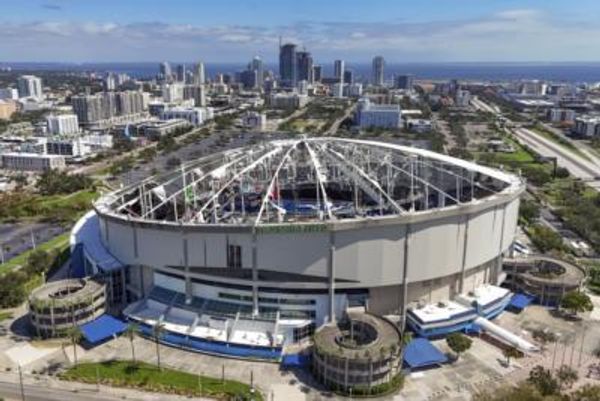
Najeeb Khan sure liked his cars.
The 70-year-old business man had reportedly amassed one of the world’s most revered classic car collections that included such topnotch vehicles as a 1952 Ferrari 225 S Berlinetta, a 1953 Fiat 8V Supersonic by Ghia and a 1963 Jaguar E-Type Lightweight.
DON'T MISS: Apple may be planning an unprecedented update for this key product
There was only one problem.
Prosecutors said that Khan, who hails from Edwardsburg, Michigan, had purchased his cars-and a lot of other stuff — through a $180 million check-kiting scam that stretched over seven years, according to Cleveland.com. And now his next ride is going to be a prison bus.
Khan was recently sentenced to eight years and one month behind bars, while his hot wheels were auctioned off by RM Sotheby’s as part of its Elkhart Collection sale in the fall of 2020, according to the Robb Report.
The auction grossed over $44 million, with seven cars fetching seven-figure sums. Khan’s lawyer said that the money from the sale was used to help his victims recover funds.
Khan owned and operated Interlogic Outsourcing Inc., a payroll processing company that, at one point, provided services to roughly 6,000 clients, according to court documents.
Massive check-kiting scheme
Beginning in 2014, however, he operated a check-kiting scheme using his company’s business bank accounts to fraudulently obtain funds from various financial institutions, including KeyBank.
Khan, U.S. Attorney Rebecca C. Lutzko said in a statement, “essentially gave himself a $150 million loan, spent money however he wanted on himself and his business, then defaulted, all without ever getting the banks’ approval to give him that loan.”
Khan, 70, of Edwardsburg, told U.S. District Judge Pamela Barker that he was “blinded by greed” that propelled him to carry out the scheme and buy more than 250 cars, as well as airplanes, boats and a helicopter.
There were also expensive vacations, mansions in Arizona and Michigan and properties in Florida and Montana, as well as planes and yachts, among other expenses.
“I’m humbled with deep regret and remorse to all the victims whose lives were negatively impacted by my actions and greed,” Khan said during the hearing.
He funneled dozens, sometimes hundreds, of checks and wire transfers with insufficient funds through three banks, artificially inflating the amount in his accounts. He siphoned off about $73 million for himself.
"I thought because I was in a position of power, that I was all-powerful," Khan said in video testimony ahead of his sentencing.
Prosecutors said that when Khan’s scheme collapsed, about 1,700 of his clients lost out on money Khan’s company had withdrawn for payroll taxes.
Those companies included small- and mid-sized businesses, nonprofits and charities, including the Boy Scouts of America and four Catholic dioceses.
'Breathtaking' amount of money stolen
Some victims had to pay the IRS or their employees out of their own pockets or take out lines of credit, prosecutors said. Others laid off employees, the Associated Press reported.
Cleveland-based KeyBank, the biggest victim, is still waiting to recover $103 million. The bank wrote off the loss in 2019, but the human toll was incalculable, said Peter Szafran, the bank’s senior vice president.
The bank had to dedicate more than 100 employees to figuring out what happened and what they could do to claw back stolen money. Several bank employees were fired for failing to detect the theft or for getting swindled by Khan, Szafran said.
He called the amount of money stolen “breathtaking” and said that the “destruction” Khan caused is still reverberating through all levels of the bank.
“It was a crime of pure avarice,” Szafran said. “It was not a crime of need but of excessive greed on an epic scale.”
In addition to his jail sentence, Kahn must pay $121 million in restitution to KeyBank, $27 million to clients and $9.8 million in back taxes.
Barker said he had collected classic cars like “toys” but she gave Khan credit for his lack of a criminal history and the $65 million he has so far paid back to victims, which included the money raised from the sale of his cars.
But Khan won’t have to call Uber for a ride.
Under a deal he struck with creditors, Khan will keep his own retirement account, two laptops, clothes, a Glock handgun and his 2005 GMC Yukon.
Action Alerts PLUS offers expert portfolio guidance to help you make informed investing decisions. Sign up now.







